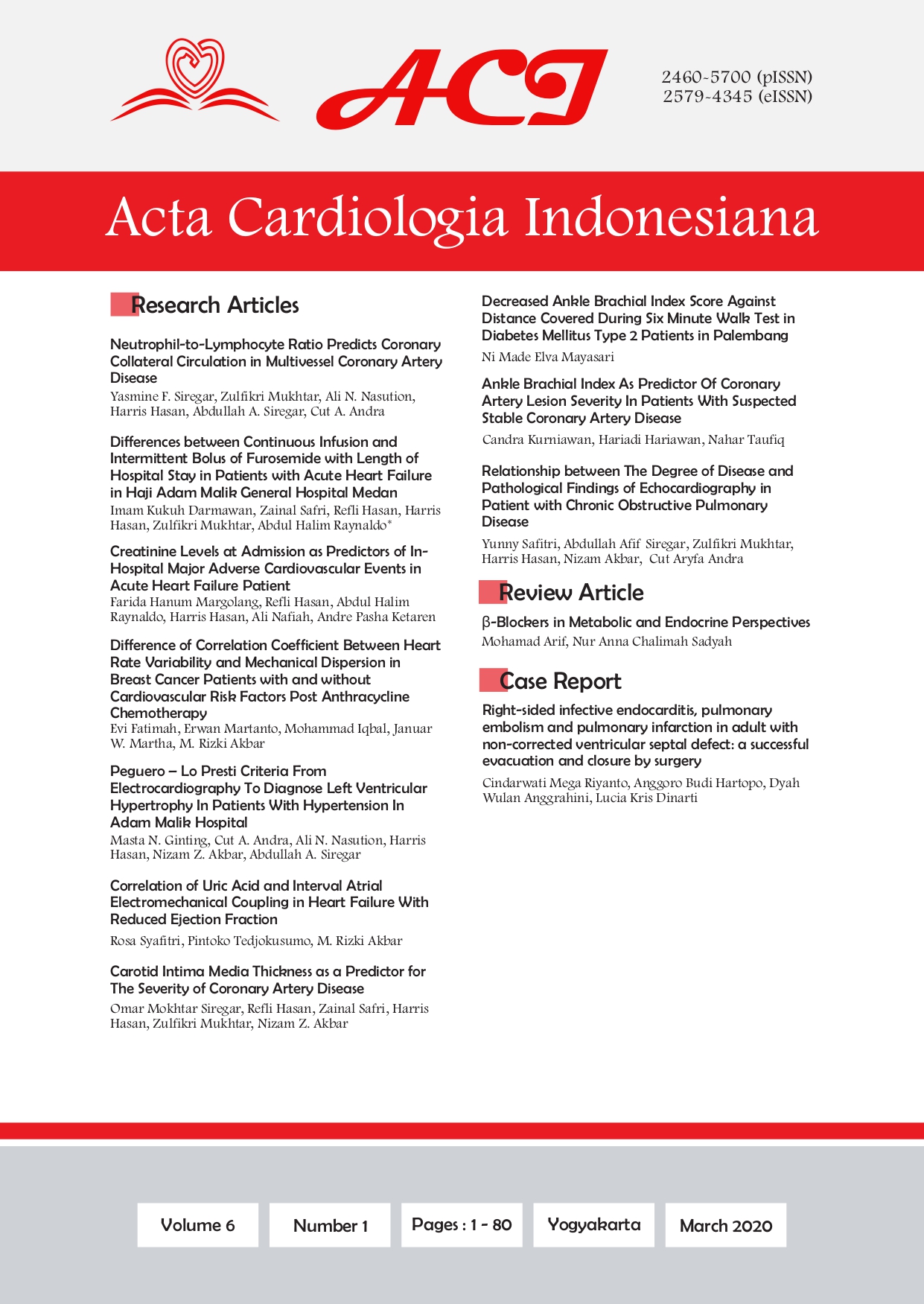Creatinine Levels at Admission as Predictors of In-Hospital Major Adverse Cardiovascular Events in Acute Heart Failure Patient
Main Article Content
Abstract
Background: Acute heart failure is a global health problem with high morbidity and mortality. Short term and long term prognosis of these patients is poor. Therefore, early identification of patients at high risk for major adverse cardiovascular events (MACEs) during hospitalization was needed to improve outcome. Creatinine levels at admission could be used as predictors of major adverse cardiovascular events in acute heart failure patients because creatinine is a simple and routine biomarker of renal function examined in patients with acute heart failure. This study aimed to determine whether creatinine can be used as a predictor of major adverse adverse cardiovascular events in patients with acute heart failure.
Methods: This study is a prospective cohort study of 108 acute heart failure patients treated at H. Adam Malik Hospital from July 2018 to January 2019. Creatinine cut-off points were determined using the ROC curve, then bivariate and multivariate analyzes were performed to determine predictors of major adverse cardiovascular events during hospitalization.
Results: From 108 study subjects, 24 (22.2%) subjects experienced major adverse cardiovascular events during hospitalization. The subjects who died were 20 people (83.4%), subjects with arrhythmia were 2 people (8.3%), and those who had stroke were 2 people (8.3 %). Through the ROC curve analysis, we found creatinine cut-off values of ≥1.7 mg / dl (AUC 0.899, 95% CI 0.840- 0.957, p <0.05). Creatinine ≥1.7 mg/dl could predict major adverse cardiovascular events with a sensitivity of 87.5% and specificity of 79.5%. Multivariate analysis showed that creatinine ≥1.7 mg / dl was an independent factor to predict MACEs during hospitalization in this study (OR 18,310, p 0.001) as well as creatinine clearance and heart rate.
Conclusion: Creatinine levels at admission is an independent predictor for major adverse cardiovascular events during hospitalization in acute heart failure patients.

